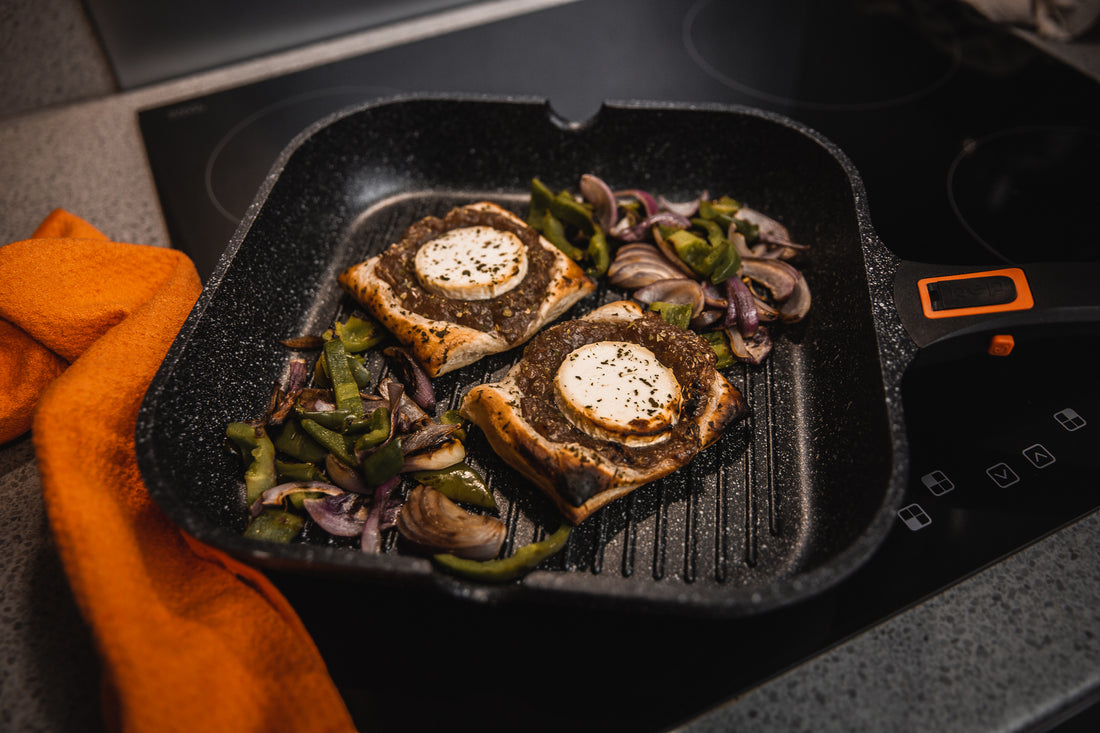The Revolution of Plant-Based Meat
The culinary landscape has witnessed a remarkable transformation in recent years, with the rise of plant-based alternatives reshaping how we think about food. Among these innovations, the veggie steak stands out as a symbol of the future of sustainable eating. With growing awareness about health, environmental, and ethical issues, more individuals are turning to veggie steaks as a delicious and viable alternative to traditional meat. This article delves into the world of veggie steaks, exploring their origins, nutritional benefits, environmental impact, and the burgeoning market that surrounds them.
The Origins of Veggie Steak
The concept of a veggie steak is not entirely new, but its modern iteration is a far cry from the rudimentary plant-based patties of the past. Early versions of meat substitutes date back to ancient China, where tofu and seitan were staples in vegetarian diets. However, the contemporary veggie steak has its roots in the late 20th century, with the advent of textured vegetable protein (TVP) and other soy-based products.
The real breakthrough came in the early 21st century, driven by advancements in food technology and a growing consumer demand for healthier and more sustainable options. Companies like Beyond Meat and Impossible Foods spearheaded this revolution, using innovative methods to mimic the taste, texture, and appearance of meat. These new veggie steaks are made from a variety of plant-based ingredients, including pea protein, soy, lentils, and even mushrooms, offering a rich and satisfying experience for the modern palate.
Nutritional Benefits
One of the primary reasons for the surge in popularity of veggie steaks is their impressive nutritional profile. Unlike traditional beef steaks, which can be high in saturated fat and cholesterol, veggie steaks offer a healthier alternative without compromising on taste or texture.
- Protein Content: Veggie steaks are often fortified with high-quality plant proteins. For instance, pea protein, a common ingredient, is rich in essential amino acids and easily digestible. This makes veggie steaks a great source of protein for vegetarians, vegans, and those looking to reduce their meat consumption without sacrificing protein intake.
- Low in Saturated Fat: Traditional steaks can be laden with unhealthy saturated fats, which are linked to cardiovascular diseases. Veggie steaks, on the other hand, are typically lower in saturated fats and free from cholesterol, promoting better heart health.
- Rich in Fibre: Plant-based diets are known for their high fibre content, and veggie steaks are no exception. A diet rich in fibre aids digestion, helps maintain a healthy weight, and lowers the risk of developing various chronic diseases.
- Vitamins and Minerals: Veggie steaks can be fortified with essential vitamins and minerals, such as B12, iron, and zinc, which are commonly found in meat but may be lacking in a plant-based diet. This fortification ensures that individuals choosing veggie steaks do not miss out on crucial nutrients.
- Antioxidants and Phytochemicals: Plants are a natural source of antioxidants and phytochemicals, compounds that help combat inflammation and reduce the risk of chronic diseases. Veggie steaks, being plant-based, are rich in these beneficial compounds.
Environmental Impact
The environmental impact of our food choices has become an urgent concern in the face of climate change, deforestation, and water scarcity. Livestock farming is one of the major contributors to greenhouse gas emissions, land degradation, and water use. Switching to veggie steaks can significantly reduce the environmental footprint of our diets.
- Lower Greenhouse Gas Emissions: The production of plant-based meats generates substantially fewer greenhouse gases compared to conventional meat. Studies have shown that producing a veggie steak can result in up to 90% less greenhouse gas emissions than producing a beef steak.
- Reduced Land Use: Livestock farming requires vast amounts of land for grazing and growing animal feed. By contrast, the production of plant-based ingredients for veggie steaks is much more land-efficient. This reduction in land use can help preserve forests and other natural habitats, promoting biodiversity.
- Water Conservation: Meat production is notoriously water-intensive. For example, producing one kilogram of beef can require up to 15,000 litres of water. Veggie steaks, made from plants, use significantly less water, making them a more sustainable choice in water-scarce regions.
- Less Pollution: Animal agriculture is a major source of water pollution due to runoff from farms carrying nutrients, hormones, and antibiotics into waterways. Plant-based meat production has a smaller pollution footprint, contributing to cleaner rivers and oceans.
The Market for Veggie Steaks
The market for veggie steaks and other plant-based meats has seen exponential growth in recent years. This surge is driven by a combination of factors, including changing consumer preferences, advancements in food technology, and increased investment in sustainable food solutions.
- Consumer Demand: There is a growing awareness of the health and environmental benefits of plant-based diets. Consumers are increasingly looking for meat alternatives that are not only nutritious but also delicious and satisfying. Veggie steaks meet this demand, offering a guilt-free indulgence for meat lovers and vegetarians alike.
- Innovation in Food Technology: Companies are continually innovating to improve the taste, texture, and nutritional profile of veggie steaks. Techniques such as extrusion, fermentation, and the use of novel ingredients like mycoprotein (derived from fungi) are pushing the boundaries of what plant-based meats can achieve.
- Investment and Market Growth: The plant-based meat sector has attracted significant investment from both private and public sectors. This influx of capital has enabled companies to scale up production, reduce costs, and expand their product ranges. As a result, veggie steaks are becoming more accessible and affordable for a broader audience.
- Retail and Restaurant Adoption: Major retailers and restaurant chains have embraced the plant-based trend, offering veggie steaks and other meat alternatives on their menus. This widespread availability has played a crucial role in normalising plant-based eating and making it a mainstream choice.
Cooking and Culinary Potential
Veggie steaks are incredibly versatile and can be prepared in a variety of ways, just like traditional meat steaks. Here are some popular methods for cooking and serving veggie steaks:
- Grilling: Veggie steaks can be grilled to perfection, offering a charred and smoky flavour that enhances their meat-like texture. Marinating the steaks beforehand can infuse them with additional taste, making them a hit at barbecues and outdoor gatherings.
- Pan-Seared: Pan-searing veggie steaks in a hot griddle pan with a touch of oil can create a crispy crust while keeping the interior moist and tender. This method is quick and convenient, perfect for weeknight dinners. Check out the Pep Griddle Pan HERE!
- Baking: Baking veggie steaks in the oven allows for even cooking and is a healthier option as it requires less oil. They can be baked with a variety of seasonings and served alongside roasted vegetables for a balanced meal. Check out the Pep Baking Tray HERE!
- Sauces and Seasonings: Veggie steaks can be paired with a wide range of sauces and seasonings to suit different culinary preferences. From classic peppercorn sauce to tangy barbecue glaze, the possibilities are endless.
- Serving Suggestions: Veggie steaks can be served as the centrepiece of a meal, accompanied by traditional steak sides like mashed potatoes, steamed vegetables, or a fresh salad. They can also be sliced and used in sandwiches, wraps, or stir-fries, adding a hearty element to various dishes.
Challenges and Future Prospects
Despite the many advantages of veggie steaks, there are still challenges to overcome. Some consumers remain sceptical about the taste and texture of plant-based meats, while others are concerned about the processing involved in creating these products. However, ongoing research and development are addressing these issues, making veggie steaks more appealing and accessible.
- Taste and Texture: Achieving a taste and texture that closely mimics meat is a primary focus for many companies. Advances in food science are continually improving the sensory qualities of veggie steaks, making them more palatable to meat-eaters.
- Processing Concerns: Some consumers are wary of highly processed foods. Transparency in ingredient sourcing and manufacturing processes, along with efforts to use whole and minimally processed ingredients, can help build trust.
- Price: The cost of veggie substitute steak is less than traditional meat and has an abundance of vegetable options.
- Cultural Acceptance: While plant-based diets are gaining popularity, cultural acceptance varies across regions. Education and awareness campaigns can help shift perceptions and encourage more people to try veggie steaks.
Veggie steaks represent a significant advancement in the quest for sustainable and ethical eating. They offer a nutritious and environmentally friendly alternative to traditional meat, appealing to a wide range of consumers. As technology continues to evolve and the market expands, veggie steaks are poised to become a staple in households and restaurants around the world. By choosing veggie steaks, individuals can enjoy delicious meals while contributing to a healthier planet.

